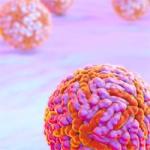
Jason Watts, M.D., Ph.D.
Stadtman Investigator
Epigenetics & RNA Biology Laboratory/Transcriptional Responses in Disease Group
NIEHS
Research Topics
Jason Watts M.D., Ph.D., leads the Transcriptional Responses in Disease Group and holds a secondary appointment in the NIEHS Genome Integrity and Structural Biology Laboratory. The group studies how nucleic acid structure and chromatin environment influence gene transcription.
The Transcriptional Responses in Disease Group focuses on mechanisms of RNA polymerase pausing and its role in human disease. RNA polymerase pausing was initially described at the promoters of a handful of genes where RNA polymerase synthesized a short segment of RNA before pausing downstream of the promoter. Genome-wide approaches have led to the understanding that RNA polymerase pausing is a general feature of metazoan gene transcription, where the movement of RNA polymerase during chain elongation is highly regulated leading to punctuated pauses that are coupled to RNA processing and fine-tuning of transcriptional output. RNA polymerase pausing regulates stress-responsive genes whose expression levels need to be titrated carefully to maintain homeostasis. This process includes transcriptional networks activated in response to kidney injury. Group members use renal, and other human cell types, to study how RNA polymerase pausing mediates transcriptional responses to physiologic and environmental stresses. In turn, the group seeks to uncover how RNA polymerase pausing regulates gene expression in health and disease.
Major areas of research:
- Defining the mechanisms by which nucleic acid sequences and structures signal to pause RNA polymerase
- Elucidating how cis-regulatory elements combine with chromatin and trans-acting complexes to regulate pausing
- Studying how RNA polymerase pausing regulates renal gene expression in the response to physiologic and environmental stressors
Biography
Watts completed his M.D. and Ph.D. in 2010 at the Perelman School of Medicine at the University of Pennsylvania. He worked with Kenneth Zaret, Ph.D., studying the pioneer transcription factor FoxA. Watts subsequently completed residency in Internal Medicine at Duke University in 2013 and clinical fellowship in Nephrology at the University of Michigan in 2017. He remained at the University of Michigan as a Clinical Lecturer and Research Fellow, working with Vivian Cheung, M.D., on studies of RNA polymerase pausing. Watts is an Adjunct Assistant Professor of Medicine at Duke University and attends on the nephrology service at the Durham VA Hospital. He joined NIEHS as a Stadtman Investigator in 2020 and has been named an NIH Distinguished Scholar.
Selected Publications
- Snyder RJ, Shankar U, Delker D, Soerianto W, Burdick JT, Cheung VG, Watts JA. Guanine quadruplexes mediate mitochondrial RNA polymerase pausing. BMC Biol. 2025;23(1):129.
- Wan M, Liu Y, Li D, Snyder RJ, Elkin LB, Day CR, Rodriguez J, Grunseich C, Mahley RW, Watts JA, Cheung VG. The enhancer RNA, AANCR, regulates APOE expression in astrocytes and microglia. Nucleic Acids Res. 2024;52(17):10235-10254.
- Watts JA, Grunseich C, Rodriguez Y, Liu Y, Li D, Burdick JT, Bruzel A, Crouch RJ, Mahley RW, Wilson SH, Cheung VG. A common transcriptional mechanism involving R-loop and RNA abasic site regulates an enhancer RNA of APOE. Nucleic Acids Res. 2022;50(21):12497-12514.
- Beamish JA, Watts JA, Dressler GR. Gene regulation in regeneration after acute kidney injury. J Biol Chem. 2024;300(8):107520.
- Watts JA, Arroyo JP. Rethinking Vasopressin: New Insights into Vasopressin Signaling and Its Implications. Kidney360. 2023;4(8):1174-1180.
Related Scientific Focus Areas


Molecular Biology and Biochemistry
View additional Principal Investigators in Molecular Biology and Biochemistry

This page was last updated on Friday, April 29, 2022